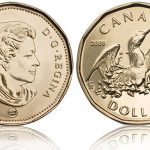 Yesterday’s trade saw USD/CAD within the range of 1.2772-1.2879. The pair closed at 1.2843, inching down 0.05% on a daily basis. It has been the 47th drop in the past 93 trading days and also a third consecutive one. The daily low has been the lowest level since May 4th, when a low of 1.2693 was registered. The major pair has advanced 2.52% so far during the current month, following three consecutive months of decline.
Yesterday’s trade saw USD/CAD within the range of 1.2772-1.2879. The pair closed at 1.2843, inching down 0.05% on a daily basis. It has been the 47th drop in the past 93 trading days and also a third consecutive one. The daily low has been the lowest level since May 4th, when a low of 1.2693 was registered. The major pair has advanced 2.52% so far during the current month, following three consecutive months of decline.
At 7:11 GMT today USD/CAD was edging up 0.26% on the day to trade at 1.2877. The pair touched a daily high at 1.2883 at 8:06 GMT, overshooting the range resistance level (R3), and a daily low at 1.2836 during early Asian trade.
Meanwhile, crude oil futures marked their 58th gain out of the past 104 trading days on May 12th. Oil for June delivery went up as high as $47.02 per barrel on May 12th, or the highest price level since November 4th, and closed at $46.33, edging up 0.22% compared to Wednesday’s close. As of 7:34 GMT today the commodity was losing 0.43% to trade at $46.13, after going down as low as $46.07 per barrel earlier.
On Friday USD/CAD trading may be influenced by the following macroeconomic reports and other events as listed below.
Fundamentals
United States
Retail Sales
Retail sales in the United States probably rebounded in April, going up at a monthly rate of 0.8%, according to the median forecast by experts. If so, this would be the sharpest monthly increase since July 2015. In March retail sales went down 0.3%.
Among the 13 major categories, 7 registered growth, 4 showed declines and 2 registered no growth in March. During the period, a decrease in sales was registered at motor vehicle and part dealers (-2.1%), clothing stores (-0.9%), food services and drinking places (-0.8%) and non-store retailers (-0.1%).
On the other hand, in March, retail sales went up at building material & garden equipment and supplies dealers (1.4%), health and personal care (1.0%), gasoline stations (0.9%), general merchandise stores (0.5%), furniture and home furniture stores (0.3%), sporting goods, hobby, book and music stores supplies dealers (0.2%) and electronics and appliance stores (0.1%), according to the report by the US Census Bureau.
Sales at food and beverages stores and miscellaneous store retailers remained unchanged in March from a month ago.
Annualized retail sales surged 1.7% in March, or at the slowest annual rate since last November, following a 3.7% climb in February.
US core retail sales, or retail sales ex autos, probably increased 0.5% in April compared to a month ago, following a 0.2% gain in March. If so, Aprils rate of increase in core sales would be the fastest since July 2015, when a revised up 0.6% surge was reported. This indicator removes large ticket prices and historical seasonality of automobile sales.
A larger-than-expected rate of increase in the general index would have a strong bullish effect on the US dollar. The official report is due out at 12:30 GMT.
Producer Price Index
Annual producer prices in the United States probably rose for the first time in the past 15 months in April, by 0.2%, according to the median estimate by experts. In March producer prices ticked down 0.1%. The Producer Price Index reflects the change in prices of over 8 000 products, sold by manufacturers during the respective period. The PPI differs from the Consumer Price Index (CPI), which measures the change in prices from consumer’s perspective, due to subsidies, taxes and distribution costs of different types of manufacturers in the country. In case producers are forced to pay more for goods and services, they are more likely to pass these higher costs to the end consumer. Therefore, the PPI is considered as a leading indicator of consumer inflation. In case annual producer prices rose at a faster rate than anticipated, this would have a moderate bullish effect on the US dollar.
The nation’s annualized core producer price inflation, which excludes prices of volatile categories such as food and energy, probably remained steady at 1.0% in April. In February the core PPI rose at an annualized rate of 1.2%. The Bureau of Labor Statistics is expected to report on the official PPI performance at 12:30 GMT.
Reuters/Michigan Consumer Sentiment Index – preliminary reading
The monthly survey by Thomson Reuters and the University of Michigan may show that consumer confidence in the United States rebounded in May. The preliminary reading of the corresponding index, which usually comes out two weeks ahead of the final data, probably rose to 91.0 during the current month from a final reading of 89.0 in April. The latter came below the preliminary reading of 89.7, which was reported on April 15th. It has been the lowest index reading since September 2015, when a final 87.2 was reported.
The sub-index of current economic conditions rose to a final reading of 106.7 in April, up from a preliminary value of 105.4, and also improving from a final 105.6 in the preceding month.
The sub-index of consumer expectations came in at a reading of 77.6, down from a preliminary value of 79.6 in April, and also down from a final reading of 81.5, registered in March.
Participants in the April survey expected that the rate of inflation will be at 2.8% during the next year, or up from a rate of 2.7% in the preliminary release and the March survey.
In case the gauge of consumer sentiment increased at a steeper pace than projected in May, this would have a moderate-to-strong bullish effect on the US dollar. The preliminary reading is due out at 14:00 GMT.
Feds Williams statement
At 22:25 GMT the Federal Reserve President for San Francisco and also a FOMC member, John Williams, is expected to take a statement. His remarks will be closely watched by market players for hints over how the Banks policy tightening cycle will develop in the future.
Daily and Weekly Pivot Levels
By employing the Camarilla calculation method, the daily pivot levels for USD/CAD are presented as follows:
R1 – 1.2853
R2 – 1.2863
R3 (range resistance) – 1.2872
R4 (range breakout) – 1.2902
S1 – 1.2833
S2 – 1.2823
S3 (range support) – 1.2814
S4 (range breakout) – 1.2784
By using the traditional method of calculation, the weekly pivot levels for USD/CAD are presented as follows:
Central Pivot Point – 1.2773
R1 – 1.3089
R2 – 1.3268
R3 – 1.3584
S1 – 1.2594
S2 – 1.2278
S3 – 1.2099





